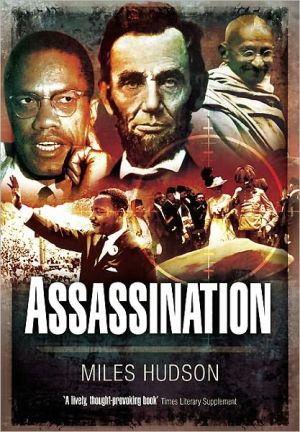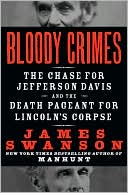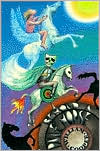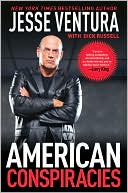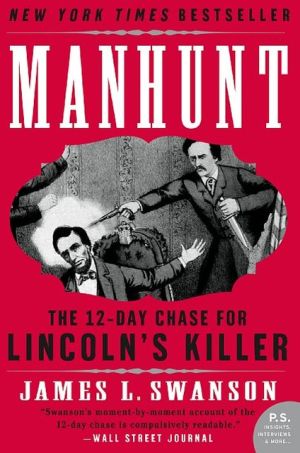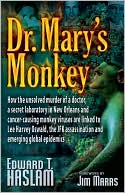Assassination
Hudson examines a fascinating range of political assassinations and questions their political effectiveness.
Search in google:
Hudson examines a fascinating range of political assassinations and questions their political effectiveness. Kirkus Reviews Does the killing of kings and religious leaders do anyone any good? British historian Hudson (War and the Media, not reviewed) looks at 18 famous cases and finds that only one might have accomplished the killer's goals. Some might object when Hudson adds Jesus Christ onto a list that includes Julius Caesar, Malcolm X, Thomas à Becket, Marat, and Rasputin. Others might ask why Abraham Lincoln is the only US president among the murdered elected leaders (like Gandhi, Yitzhak Rabin, and South Africa's Hendrick Verwoerd) who, Hudson feels, might have changed their nations for the better had they died of natural causes. And why consider luckless victims like Archduke Franz Ferdinand (whose killing started WWI) and Lord Frederick Cavendish (knocked off by the IRA), who, like so many modern terrorist targets, were killed because they happened to be easy prey? It seems that in studying the phenomenology of assassination, Hudson is after bigger game. In his clear, accessibly argued monograph, he builds on the ideas of American sociologist Alfred Hirschman, who wrote off assassinations as a fool's errand that can bring on only one of three outcomes: a backlash that reverses what the killers may have hoped to accomplish (Christ, Caesar, Lincoln), unforeseen calamities that make things worse for everyone (Archduke Ferdinand, Czar Nicholas II, Michael Collins), or a failure to alter whatever social conditions inspired the killing (Rasputin, Marat, Rabin). Hudson finds only one exception: Stalin's killing of Leon Trotsky, which he believes reinforced Stalin's reputation as a ruthlessly powerful global dictator. Lurking behind Hudson's study is the big question oftheextent to which individuals influence the fate of nations. His carefully qualified answer: not much. Though Hudson's choice of cases prefigures his conclusions, his evidence is incisive enough to challenge, if not disarm, the ill-informed hatemongering of those who advocate the killing of public leaders. (30 b&w illustrations, not seen)
Acknowledgements 6\ Introduction 7\ 1 Julius Caesar Thomas à Becket 13\ 2 Mahatma Gandhi Jesus Christ 28\ 3 Jean Paul Marat Leon Trotsky 53\ 4 Lord Frederick Cavendish Archduke Franz Ferdinand 70\ 5 Tsar Alexander II Abraham Lincoln 87\ 6 Field Marshal Sir Henry Wilson Michael Collins 110\ 7 King Abdullah Anwar Sadat Yitzhak Rabin 129\ 8 Hendrik Verwoerd Martin Luther King Malcolm X 151\ Conclusion 178\ Appendix 187\ Bibliography 189\ Index 193
\ Kirkus ReviewsDoes the killing of kings and religious leaders do anyone any good? British historian Hudson (War and the Media, not reviewed) looks at 18 famous cases and finds that only one might have accomplished the killer's goals. Some might object when Hudson adds Jesus Christ onto a list that includes Julius Caesar, Malcolm X, Thomas à Becket, Marat, and Rasputin. Others might ask why Abraham Lincoln is the only US president among the murdered elected leaders (like Gandhi, Yitzhak Rabin, and South Africa's Hendrick Verwoerd) who, Hudson feels, might have changed their nations for the better had they died of natural causes. And why consider luckless victims like Archduke Franz Ferdinand (whose killing started WWI) and Lord Frederick Cavendish (knocked off by the IRA), who, like so many modern terrorist targets, were killed because they happened to be easy prey? It seems that in studying the phenomenology of assassination, Hudson is after bigger game. In his clear, accessibly argued monograph, he builds on the ideas of American sociologist Alfred Hirschman, who wrote off assassinations as a fool's errand that can bring on only one of three outcomes: a backlash that reverses what the killers may have hoped to accomplish (Christ, Caesar, Lincoln), unforeseen calamities that make things worse for everyone (Archduke Ferdinand, Czar Nicholas II, Michael Collins), or a failure to alter whatever social conditions inspired the killing (Rasputin, Marat, Rabin). Hudson finds only one exception: Stalin's killing of Leon Trotsky, which he believes reinforced Stalin's reputation as a ruthlessly powerful global dictator. Lurking behind Hudson's study is the big question oftheextent to which individuals influence the fate of nations. His carefully qualified answer: not much. Though Hudson's choice of cases prefigures his conclusions, his evidence is incisive enough to challenge, if not disarm, the ill-informed hatemongering of those who advocate the killing of public leaders. (30 b&w illustrations, not seen)\ \
